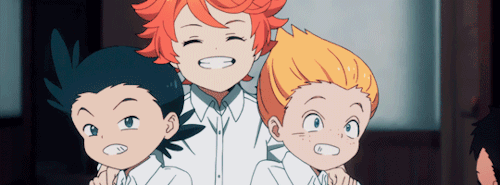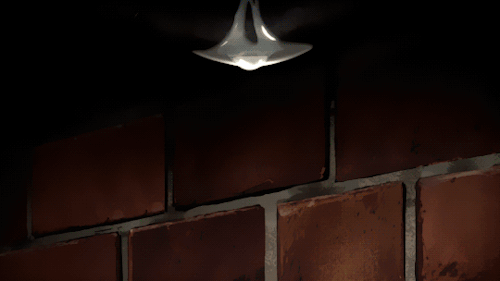#and the stakes were presented really well that dream scene where chihiro is trying to find her parents in the pig pen is really freaky to me
Text
There is nothing more disappointing than finally checking out a movie that basically everyone says is really really good and gets tons of hype only for it to be the most mediocre thing you’ve ever seen.
#this is about spirited away idk what y’all see in that movie but I’m happy for you#idk if it was just the hype giving me impossible standards or what but I could not get into it#and it sucks because I can totally see things that I really like and I see the great movie everyone else does#but then it’s just nothing for an hour#like. I really like the stuff with chihiro just talking to the other employees and the stuff with no face#and the stakes were presented really well that dream scene where chihiro is trying to find her parents in the pig pen is really freaky to me#but I don’t care about half these characters. I don’t care about dragon boy I don’t care about the old lady or her weird baby or her sister#and I kind of had a hard time following what was going on at times#idk maybe it’s a cultural/language thing#I’m not gonna get everything even in an English dub because it wasn’t made to be watched in English#it’s the classic question of: is everyone else blinded by nostalgia or am I just not getting it?#I wish I liked this movie as much as everyone else but it’s not clicking for me#fern’s ramblings
2 notes
·
View notes
Text
Welcome to the Dark Side – We have Kiddies

‘The Promised Neverland’ PILOT Review
With so much to indulge in from the seamless animation, atmospheric score and debilitating action, it is hard to know where to start addressing how perfectly this horror story has been put together. Indeed, one would be hard pressed to argue that ’The Promised Neverland’ doesn’t deliver one of the most ambitious Pilots to date, many other critics and viewers agreeing that this tale of orphans attempting to escape from their malevolent ‘carers’ gives international anime moguls the likes of Attack on Titan a well-earned run for its money. We are immediately captivated by the mesmerising aesthetics as well as the engaging characters in our protagonists of Emma, Norman and Ray, but what is especially engaging is how sublime this production is - how beauty only enhances our experience of terror, and how refreshing it is that a narrative need not be rife with gore and violence in order to make us want to peel off our skin.
MANY SPOILERS AHEAD
The plot essentially revolves around the thirty-seven orphans who live in supposedly blissful harmony at Grace Field House - a Victorian-esque establishment enshrined in woodlands where the children are free to do as they please; the three at the head of the ring being the sprightly Emma, ingenious Norman and pragmatic Ray. The only rule that is that the children are never allowed to approach the ‘gate’ or cross over the fence which snakes through the trees; for so long as everyone behaves under the ever-vigilant eyes of ‘Mom,’ there should be little to worry about. The existence of the gate in itself then is the immediate red flag that undercuts this bucolic reverie, the Pilot being quick to establish the essential parameters of the story (quite literally) so that we are made aware of the stakes from the inception. The gate is the very first shot we see as the three friends speculate about what lies beyond, this becoming more intriguing if one were able to compare this to Chihiro’s passing under the gate in Spirited Away. In that case, it was about the protagonist’s adventure to escape from the land of the spirits in order to return to where she belonged, so we are set up with a similar narrative yet with a distinctly darker undertone.
We still can’t exactly fathom why, however - is it the Professor Layton-esque background composition? The animation’s resonance with the sharpness of Tim Burton? Both these qualities in comparison to the colour and majesty of Miyazaki’s Oscar-winner sets the insidious charm of this anime into further relief, and if we are aware that Chihiro’s fate was to run into unruly spirits, we are led to dread what exactly lies beyond for our heroes here. After all, it isn’t difficult to become instantly attached to our heroes with Emma being established as a typical shonen-heroine. Athletic, full of beans and mollycoddling the other children, her charisma establishes her as the foremost protagonist that the action will mainly revolve around. Her companion Norman too comes across as kindly and affectionate, he being noted more for his status as a genius amongst the children, whilst the more reserved Ray is an object of mystery; spending most of the episode observing from the side.

The unfolding action soon divulges that the maximum age that the children are known to stay at the orphanage is twelve years (the three main protagonists already being eleven) and apparently as soon as the children leave to supposedly join their adoptive families, they never make contact again. The way we obtain this information then is incredibly effective in establishing that initial sense of unease and dread then as we learn this via the kids themselves. They lament over how their old friends never bother to visit or write, this being very telling of how it is not so much that they don’t - but can’t. It then becomes even more heart-rending when children start detailing their dreams about the lives they want to have once they leave the house, this causing you to squirm as the narrative is emphatic about the humanity of these kids and how easily the viewer can become invested in them. This then makes the truth of their situation more mortifying and our suspicions established at the beginning perhaps worse than justified. The house, their home, is a farm; their beloved Mom works to perfect meat for Demons, and the delicacy she specialises in are the kids, her ‘precious children,’ themselves.
This revelation coming about when Emma and Norman sneak out to the gate to give Conny, one of their youngest and latest to leave the house, back her toy bunny, firmly establishes that the stakes are set and that the rest of this story will be a race of survival. The persistent motif of the clock suddenly makes sense; it is illustrated as looming in the background behind Norman and ticks ominously around the moment of truth. There are additional symbols that are established to evoke our curiosity like the red flowers growing out of Conny’s corpse, and the meaning behind the ID numbers tattooed to the children’s throats becomes increasingly formidable. But what is especially evocative is the role of the villain that is established in Mom. After all, throughout the episode, she has a smile plastered to her face and we frequently hear just how much the children - Conny and Emma in particular - love Mom very much. Now her expression is cold and mask-like, allowing us to make sense of how her former warmth seemed two-dimensional and her hugs mechanical, as she is nurturing not living beings but expensive merchandise.
The use of expression and the music is the critical component of this terror - something which anime will perhaps always have the upper hand in over live-action as every detail is able to cut into us far more seamlessly than any real human expression can. As is common in anime, the most particularly captivating aspect is the eyes, and in the gothic fashion, they really are the windows to the soul - the perfect insight into how Emma and Norman’s realities have been ripped apart to become void and null.

This is only doubly effective of course due to the execution of each scene in the anime, as one moment of normality will be suddenly undercut by terrified eyes and make us seize in turn. This is even more pronounced with the use of music as it is usually a relaxed or jazzy accompaniment of the action but will be cut and jarred suddenly by screeches or silence. This is taken the fullest advantage of then in that final shot of the Pilot as we initially see Norman trying to comfort a bereft Emma with the promise of escape. The music which accompanies this is a heavenly soothing chorus, a typical melody to embellish that sense of hope, only to be horrifically punctured with a shot of Mom’s that will knock the wind out of you every single time. She’s holding Conny’s bunny and we’re thinking the same thing: she knows.
So the horse has bolted - the game more than any harmless round of tag but a trial of life and death. What makes that final shot even more significant is how we might be used to being presented with seemingly unconquerable odds in all forms of media, but this anime wants to firmly establish how this is going to be more difficult and disturbing a journey than most. This Pilot has completely distorted the meaning of ‘Neverland’ forever, as Peter Pan’s concept of children never growing up has been awfully literalised. The place we once wanted to run away to now has become that which we are desperate to sprint away from, the irony being that you could not be more excited to see how Emma, Norman and Ray are inevitably going to be forced to make their first move.
Tanika Lane
Image (Gifs) Credit: dragonsofarcadia, kizunah, mangastream
#the promised neverland#tpn#yakusoku no neverland#ynn#ynn spoilers#pilot#review#own writing#filmsandtelevision#animation
6 notes
·
View notes